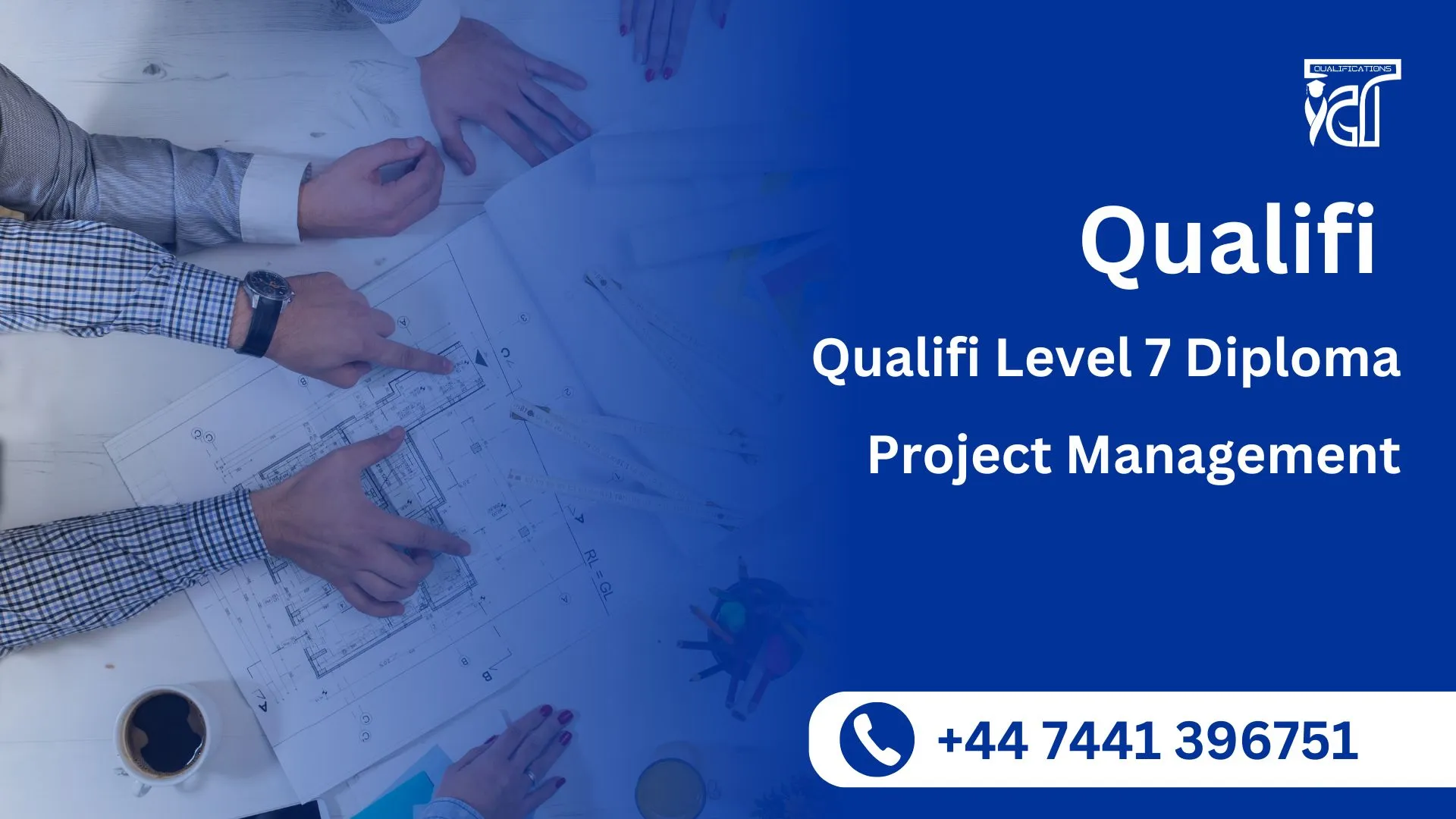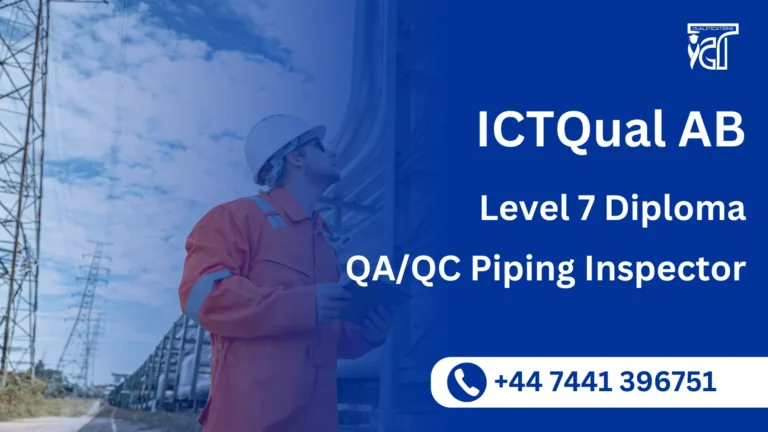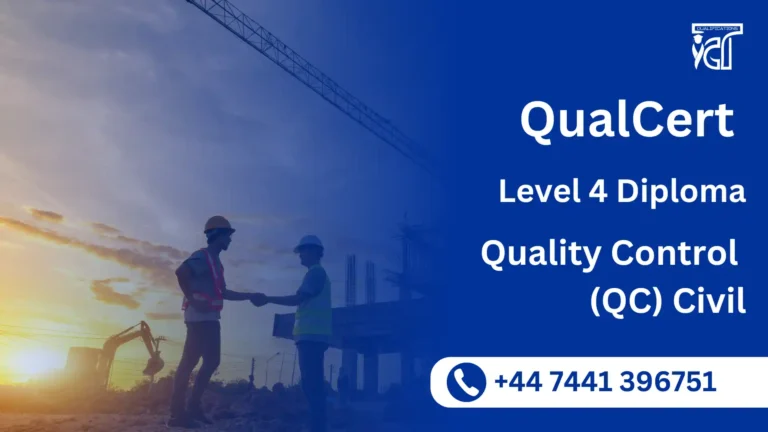In today’s rapidly evolving business environment, effective project management is crucial to the success of any organization. The Qualifi Level 7 Diploma in Project Management is a prestigious qualification designed to equip individuals with advanced skills and knowledge to lead and manage projects efficiently. As an OfQual regulated qualification, this diploma is recognized for its high standard of education and its ability to provide graduates with the expertise needed to take on senior management roles.
The Qualifi Level 7 Diploma in Project Management is tailored for individuals who have already gained foundational project management experience and are looking to advance their careers further. This qualification is ideal for professionals seeking to enhance their ability to manage complex projects, improve organizational processes, and align project goals with the broader business strategy. By focusing on practical skills and strategic insight, the course prepares learners for leadership roles in various industries, including construction, IT, finance, and healthcare.
As an OfQual regulated qualification, the Qualifi Level 7 Diploma in Project Management adheres to strict quality standards and is recognized by employers and educational institutions alike. This means that graduates of the program can be confident in the value of their qualification and its ability to open doors to senior project management roles. The qualification is designed to meet the needs of both current and aspiring project managers, helping them to enhance their skills and gain the confidence necessary to lead successful projects.
The Qualifi Level 7 Diploma in Project Management is an invaluable qualification for professionals looking to take their project management skills to the next level. Its rigorous curriculum, flexible learning options, and recognition by OfQual make it a reliable and highly regarded qualification in the field of project management. Whether you are looking to move into a senior management position or enhance your current project management expertise, this diploma provides the tools and knowledge needed to succeed in today’s competitive business environment.
Qualifi Level 7 Diploma in Project Management
Qualifi Level 7 Diploma in Project Management consists of 11 mandatory units having 1200 TQT and 600 GLH. Candidates must complete all of the following Mandatory units.
| Sr# | Unit Title | Credits | GLH |
| 1 | Manage Team Performance to Support Strategy | 10 | 50 |
| 2 | Procurement Risk and Contract Management | 10 | 55 |
| 3 | Project and Logistics Management | 10 | 55 |
| 4 | Operations and Information Management for Project Managers | 10 | 55 |
| 5 | Research Methods for project management | 10 | 55 |
| 6 | Principles of Project Management | 10 | 55 |
| 7 | Operations and Global Supply Chain Management | 10 | 55 |
| 8 | Leadership and Professional Development | 10 | 55 |
| 9 | Managing Risk, Uncertainty and Complexity in Projects | 10 | 55 |
| 10 | Innovation in Project Management | 10 | 55 |
| 11 | Project Management | 10 | 55 |
GLH (Guided Learning Hours) and TQT (Total Qualification Time) are terms commonly used in vocational qualifications to help define the amount of time a learner is expected to spend on their studies.
1. GLH (Guided Learning Hours)
GLH refers to the number of hours a learner spends being directly taught, supervised, or supported during their course. This includes the time spent in activities such as:
- Classroom instruction
- Practical workshops
- One-on-one tutoring or mentoring sessions
- Online learning sessions with tutor support
In other words, GLH represents the time that learners are actively engaged with their instructors or learning activities.
2. TQT (Total Qualification Time)
TQT represents the total amount of time a learner is expected to invest in completing a qualification, including:
- GLH (Guided Learning Hours): Time spent on direct learning, as explained above.
- Self-Directed Learning: This includes time spent on independent study, research, assignment completion, preparation for exams, and any other work the learner does outside of direct teaching hours.
TQT is a broader measure that includes all the time required to achieve the qualification. It helps learners and employers understand the overall commitment required for the qualification.
Key Differences Between GLH and TQT:
- GLH focuses on direct learning with guidance or supervision.
- TQT includes GLH as well as independent study time and other learning-related activities.
Example:
If a qualification has a TQT of 600 hours and a GLH of 250 hours, it means the learner should spend 250 hours in direct learning (classroom, online, or tutor-led sessions) and 350 hours on independent study or research.
Learning Outcomes of Qualifi Level 7 Diploma in Project Management
Planning, Controlling and Leading a Project
- Be aware of the concept and principles of project management in the workplace.
- Be able to create methods and plans for launching, managing and leading initiatives.
- Be able to assess the effectiveness of project management team communication.
- Be able to create project monitoring and management procedures.
- Understand how to close and review the completion of a project.
Procurement Risk and Contract Management
- Understand the fundamentals of contract management and procurement.
- Be able to assess the procurement operating environment and legislation critically.
- Understand how procurement activities are managed.
- Understand the procurement and contract management risk management processes.
Project and Logistics Management
- Identify the characteristics and goals of project, program, and portfolio management.
- Understand the global supply chain ecology.
- Understand the importance of information technology in logistics and supply chain management.
Operations and Information Management for Project Managers
- Be able to evaluate the role of operations management in a company.
- Understand product and service strategic capacity planning.
- Understand the requirements for using information technology to manage inventory effectively.
- Understand scheduling operations for project managers.
- Understand project quality management systems.
Research Methods for Project Management
- Develop research methodologies in an environment that is appropriate for the task.
- Be able to conduct a critical review of literature on a business study topic.
- Be able to create research methodologies that are suited for the situation
- Be able to write and present a research proposal
Principles of Project Management
- Understand the principles of project management and their importance in successful project delivery.
- Understand the project lifecycle, project objectives, project success criteria and success factors.
- Be able to analyse the range of established and innovative processes and methodologies for project planning, execution and control.
Operations and Global Supply Chain Management
- Be able to understand the nature of supply chains.
- Be able to appraise product and process design and their connections with operations and global supply chains, competitive performance indicators and business economics.
- Be able to deliver organizational supply chain management goals through planning and control of supply and demand.
- Be able to evaluate the effectiveness of techniques for operations and supply chain improvement.
Leadership and Professional Development
- Understand a range of leadership models, theories and concepts.
- Be able to formulate a plan that addresses their leadership development needs.
- Be able to analyse the drivers of change and the implications for the role of organisational leadership.
Managing Risk, Uncertainty and Complexity in Projects
- Be able to evaluate the risk management process.
- Be able to assess the extent to which it is possible to control a complex project environment.
- Be able to control and manage a complex project environment.
Innovation in Project Management
- Understand the innovation project environment.
- Understand the use of best practices and tools that project managers should use in an innovation environment
Project Management Planning
- Be able to evaluate a range of project management models and tools
- Be able to manage the risks and uncertainties inherent in project management.
- Be able to develop a project plan
The Qualifi Level 7 Diploma in Project Management offers numerous benefits to professionals seeking to enhance their project management skills and advance their careers. This qualification stands out due to its comprehensive curriculum, flexible study options, and the prestigious recognition it holds as an OfQual regulated qualification. Here are some key benefits of pursuing the Qualifi Level 7 Diploma:
- Industry Recognition and Credibility
As an OfQual regulated qualification, the Qualifi Level 7 Diploma in Project Management is highly regarded by employers worldwide. The diploma adheres to stringent educational standards, ensuring that the skills and knowledge gained are both relevant and up-to-date with industry practices. Graduates of the course are recognized as highly qualified project management professionals, which can open doors to senior-level management roles. - Advanced Project Management Skills
The course delves deep into the technical and leadership aspects of project management. Participants will gain expertise in managing complex projects, overseeing large teams, mitigating risks, handling budgets, and ensuring the successful delivery of projects. This advanced knowledge equips graduates to tackle challenges and make informed decisions, leading to more successful project outcomes. - Career Advancement Opportunities
With the increasing demand for skilled project managers across industries, completing this diploma positions graduates to pursue more senior and strategic roles within their organizations. Whether in construction, IT, finance, or healthcare, the diploma enhances a professional’s employability and makes them a valuable asset to any organization looking to implement and manage high-impact projects. - Practical and Strategic Insight
Unlike many theoretical courses, the Qualifi Level 7 Diploma is designed to offer practical learning. Students engage with real-world case studies, apply project management theories to actual business scenarios, and develop problem-solving skills that can be immediately applied in the workplace. The program’s emphasis on strategic alignment ensures that graduates can contribute to the broader business goals while delivering projects that meet organizational objectives. - Flexible Study Options
The qualification is available through both full-time and part-time study options, offering flexibility for professionals who wish to advance their qualifications without taking a break from their careers. Online learning modules, workshops, and assessments ensure that students can balance their professional responsibilities while pursuing their education. This flexibility makes the course accessible to individuals from various backgrounds and commitments. - Global Applicability
Given that project management is a universal discipline, the knowledge gained through the Qualifi Level 7 Diploma is applicable in various industries and across geographical boundaries. Whether you’re working in the UK or abroad, the skills and insights you gain will help you manage projects effectively in any organizational setting. - Pathway to Further Certifications
The Qualifi Level 7 Diploma in Project Management serves as an excellent foundation for individuals seeking additional certifications. Many project managers use this qualification as a stepping stone to pursue further credentials from respected organizations like the Project Management Institute (PMI) or the Association for Project Management (APM). The diploma’s in-depth coverage of project management principles provides a solid base for those looking to specialize or gain even higher levels of expertise. - Enhanced Leadership Skills
In addition to technical project management skills, this qualification places a strong emphasis on leadership development. Graduates learn how to lead diverse teams, communicate effectively with stakeholders, and inspire confidence. These leadership skills are invaluable for those looking to take on higher-level managerial roles and to lead projects with greater efficiency and success.
The Qualifi Level 7 Diploma in Project Management offers significant advantages for professionals looking to elevate their project management careers. From advanced technical knowledge to leadership training, career advancement, and global recognition, this qualification provides the tools necessary to manage complex projects and lead teams to success. Whether you’re aiming for a senior project management role or seeking to enhance your existing expertise, this diploma opens up numerous opportunities in the ever-growing field of project management
The Qualifi Level 7 Diploma in Project Management is designed for professionals who have already gained some experience in the field and are looking to advance their skills to a more strategic and leadership-oriented level. The ideal learner for this qualification is someone who is ready to take on more significant project management responsibilities and wants to deepen their understanding of both the technical and leadership aspects of the profession. Below are the characteristics of an ideal learner for this program:
- Experienced Project Managers
The course is best suited for individuals who have some prior experience in managing projects, whether in a leadership role or as part of a team. Learners should already have a fundamental understanding of project management principles and are looking to develop a more advanced, strategic, and comprehensive skill set. The diploma is designed to build on existing knowledge and elevate it to a higher level, providing graduates with the tools to handle more complex and larger-scale projects. - Mid-to-Senior Career Professionals
This qualification is ideal for individuals who are currently in mid-to-senior management positions and wish to expand their knowledge and skills in project management. These professionals may be managing teams, overseeing projects, or preparing for promotion to higher-level leadership roles. The diploma provides them with the expertise to manage more significant projects and to play a key role in their organization’s strategic planning and decision-making processes. - Aspiring Senior Leaders
Individuals who aspire to take on senior management or executive roles in project-based organizations will benefit greatly from the Qualifi Level 7 Diploma. The program emphasizes leadership, risk management, and aligning projects with business objectives, preparing learners to handle high-level responsibilities such as strategic planning, resource allocation, and organizational development. - Professionals Seeking Career Growth
For professionals looking to advance in their careers, this diploma offers a competitive edge. It is ideal for individuals who want to stand out in the competitive project management field and demonstrate their advanced knowledge and ability to lead complex projects. Those looking to enhance their qualifications and increase their chances of securing higher-paying roles or promotion within their current organization will find the diploma an invaluable asset. - Individuals from Various Sectors
The course is suitable for project managers across a wide range of industries, such as construction, healthcare, IT, finance, and engineering. Whether managing a construction project, leading an IT development team, or overseeing the implementation of business strategies, the skills and knowledge gained from the diploma can be applied across various sectors, making it a versatile qualification. - Lifelong Learners with a Passion for Professional Development
The ideal learner is also someone who values ongoing learning and development. Project management is an ever-evolving field, and the ability to stay ahead of industry trends and best practices is essential. This diploma attracts individuals who are committed to continuous improvement and eager to stay updated on the latest tools, techniques, and methodologies in project management. - Professionals with Strong Time Management and Organizational Skills
Since the qualification is challenging and requires a commitment to independent study, learners should have strong time management and organizational skills. Whether studying full-time or part-time, managing work, family, or other commitments alongside the course requires dedication and the ability to stay organized.
The ideal learner for the Qualifi Level 7 Diploma in Project Management is a seasoned professional seeking to elevate their career, gain a deeper understanding of project management, and prepare for leadership positions. Whether you are looking to advance your current project management skills or are aiming for higher-level responsibilities, this qualification is tailored to help professionals reach their full potential in the competitive project management landscape.
Entry Requirements
Register Now
Qualification Process
Qualification Process for the Qualifi Level 7 Diploma in Project Management
- Self-Assessment:
Begin by evaluating your eligibility to ensure you meet the qualification requirements, including work experience, knowledge, and language proficiency. - Registration:
Complete your registration by submitting the required documents, including a scanned copy of a valid ID, and paying the registration fee. - Induction:
An assessor will conduct an induction to confirm your eligibility for the course and explain the evidence requirements. If you do not meet the criteria, your registration will be canceled, and the fee will be refunded. - Assignments & Evidence Submission:
Provide all assignments and the necessary evidence based on the assessment criteria outlined in the course. If you are unsure of the required evidence, consult with the assessor for guidance on the type and nature of evidence needed. - Feedback and Revision:
The assessor will review your submitted evidence and provide feedback. Evidence that meets the criteria will be marked as “Criteria Met,” while any gaps will be identified. You will be asked to revise and resubmit if needed. - Competence Evidence:
Submit final evidence demonstrating that all learning outcomes have been met. This evidence will be marked as “Criteria Met” by the assessor once it is satisfactory. - Internal Quality Assurance (IQA):
The Internal Quality Assurance Verifier (IQA) will review your evidence to ensure consistency, quality, and compliance with standards. - External Verification:
The IQA will submit your portfolio to Qualifi’s External Quality Assurance Verifiers (EQA) for final confirmation. The EQA may contact you directly to verify the authenticity of your evidence. - Certification:
Upon successful completion of all checks, Qualifi will issue your official certificate, confirming that you have attained the Qualifi Level 7 Diploma in Project Management.







